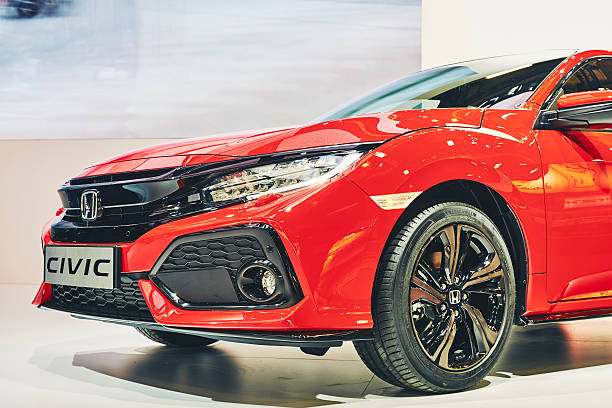Escolher entre a empolgação de comprar um carro novo e a segurança de um veículo usado bem mantido é um dilema significativo. Este guia foi elaborado para fornecer informações fundamentais que ajudarão você a fazer uma escolha consciente ao selecionar seu próximo automóvel, seja ele novo ou seminovo.
1. Buying a new car
First-class, state-of-the-art equipment
The latest model cars are equipped with the most modern electronics and innovative comfort functions. Thanks to advanced safety systems and innovative entertainment options, it is very attractive to be at the forefront of automotive developments.
2. Benefits of warranty and maintenance
Warranty coverage is a major benefit when buying a new one. During the worry-free period, most maintenance costs are covered, giving new car owners peace of mind.
Depreciation
Depreciation starts the moment you drive your new car off the parking lot. After the initial depreciation has taken place, the overall value of your investment can drop dramatically.
Large initial expenses
For those on a budget, upfront costs are an important factor to consider when purchasing a new car.
Lower starting price
For those on a budget, buying a used car is a great way to save money and still have access to a linked vehicle.
3. Depreciation rate reduced
Used cars are depreciated less often than new cars. This gives you a better chance of retaining most of the car’s value over time.
Disadvantages
Used cars may not have the same extended warranty as new cars. Buyers should consider possible repair costs after the initial warranty period.
4. Possible maintenance problems
Vehicles that are more than a few years old may have seen better days and may require more frequent maintenance. It is important to perform a thorough inspection before completing your purchase.
5. Budget factors
Purchase a vehicle
Before you enter the market, you need to get your finances in order. Consider the total cost of ownership, not just the initial investment, including things like insurance, gas and maintenance.
Financing Options for Used Cars
Financing options may differ for new and used vehicles. Take the time to learn the ropes and research all your options so you can make an informed choice.
6. Model evaluation and research
Use Internet resources
Use Internet resources to learn about the model and read the evaluation. Gain a better understanding of the performance and reliability of specific makes and models through first-hand accounts from actual users.
Consult experts for advice
To get a balanced understanding of the pros and cons of different cars, it is best to read reviews written by experts in the field.
7. Inspection and test drive
Test drive is so important
Take it for a test drive to get a feel for the vehicle and find out if there are any problems. This important phase should not be overlooked at any time during the decision-making process.
Major Parts to Inspect
The engine, transmission and general condition of a used car are the three most important components that need to be thoroughly inspected. It is advisable to have it checked by a reliable mechanic before purchasing.
8. Negotiation Methods
Negotiation method
Bargaining is common when purchasing a vehicle. Know the value of something on the market so you can negotiate it.
Marketplace
To avoid paying too much, you need to know the fair market value of the car. Estimates can be found using a variety of online tools that take into account the make, model and condition of the vehicle.
9. Costs associated ownership
Invisible costs associated
In addition to the purchase price of a new car, there may be additional costs such as taxes, registration fees and possibly higher insurance premiums. Include these in your financial plan.
Money for regular maintenance
Even with warranty coverage, you can expect recurring maintenance costs. When setting your budget, you should take into account routine maintenance and unexpected repairs.
10. Potential sales price
Estimated value of a new car
Every car eventually loses some value, but some lose it faster than others. To determine whether a new car will be financially viable in the long term, research its resale value.
Valuable when it is sold
When it comes to used cars, resale value depends heavily on factors such as mileage, maintenance history and general condition. Keep these things in mind when making your choice.
11. Issuing the Final Summons
Consider everything
Think about everything we’ve discussed so far, from your own preferences to your budget. A comprehensive assessment can help you find a decision that fits your priorities.
Long-term happiness
Make a choice that meets both your short-term needs and your future needs. Finding a vehicle that meets your needs and meets your future goals is critical.
FAQs
1. Is it always cheaper to buy a used car?
Yes, in many places. Those on a tight budget may consider purchasing a used car due to the lower upfront cost and slower depreciation rate.
2. How do you judge whether a used car is reliable?
Make sure everything is in order by requesting the car’s maintenance records. For extra security, consider purchasing a certified pre-owned vehicle.
3. Would you recommend a certified pre-owned vehicle?
Certified pre-owned vehicles are a great option for used car buyers because they have undergone extensive inspections and have longer warranties.
4. How long does it usually take for a brand new car to lose value?
A brand new car can lose about 20% of its value in the first year, and in the first three years that number can go up to 50%. Knowing this ratio can help you calculate the value of your long-term investment.
5. What is the best way to negotiate the price of a new car?
Do your homework on the fair market value of the property, be prepared to walk away if necessary, and consider getting pre-approved for financing to give yourself more leverage in negotiations.
Conclusion
Overview of important factors
Numerous factors must be carefully evaluated to solve the puzzle between new and old products. Selection of used cars. Whether you want advanced technology or want to save money, it’s important to weigh the pros and cons.
Encourage wise choices
With more information available, you can make a more informed choice. Choose the one that best suits your needs to ensure a satisfying and enjoyable ownership journey.



